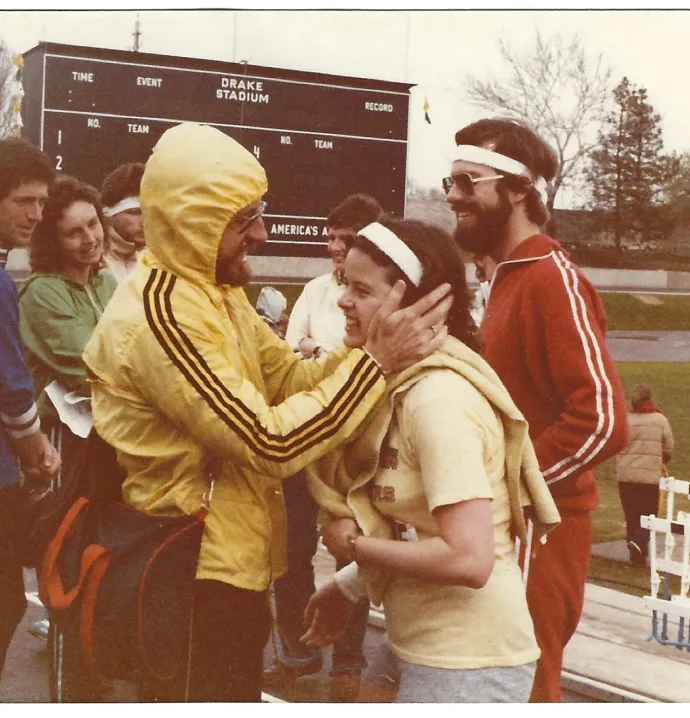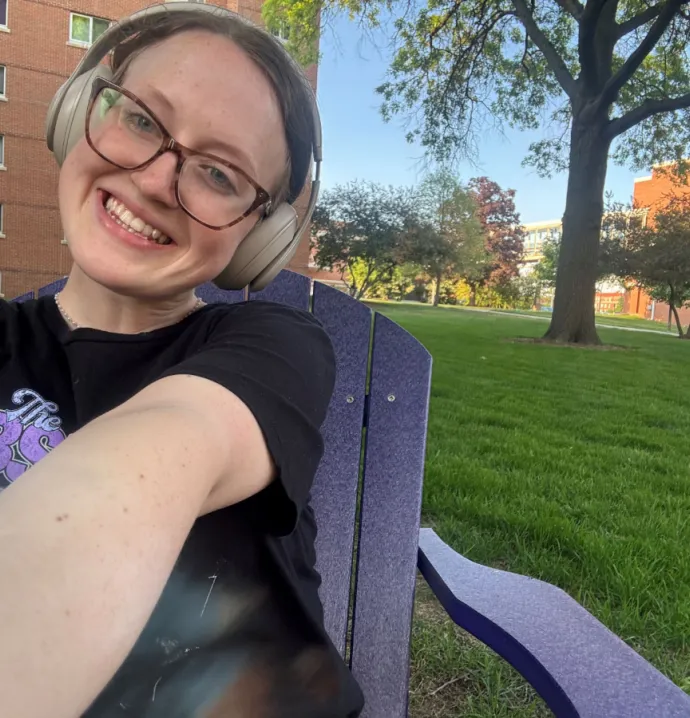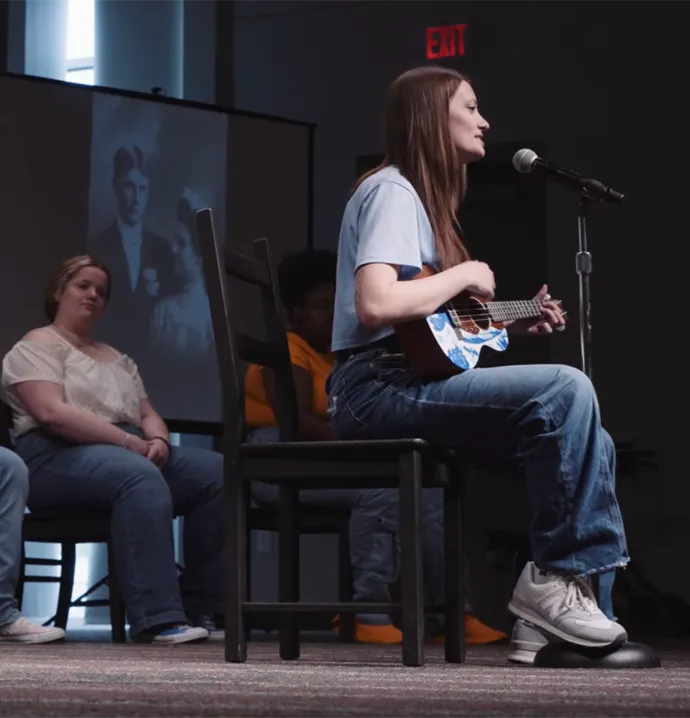School psychology program gets national attention
School psychology program gets national attention
A University of Northern Iowa professor spoke recently at a virtual Congressional briefing about a groundbreaking program she’s leading that could serve as a national model to help increase student access to mental health services, particularly in rural areas.
“Anxiety and depression are certainly on the rise in the adolescent population,” said Nicole Skaar, a national expert who is also coordinator for UNI’s school psychology program. “I hear on a regular basis from principals, superintendents and teachers that this is where they are struggling. We need to get students support and help.”
To address this, UNI partnered with Green Hills Area Education Agency, and, later, the Prairie Lakes Area Education Agency, to create a distance education program that will increase the number of school psychologists in these areas by 20% across a five-year grant period. The partnership, which serves high-need rural areas with high poverty rates and fewer options for referrals, could become a national model as schools throughout the country seek to bolster their school psychologists numbers.
The program will train existing K-12 educators who already have a master’s degree. They will complete the program and earn an education specialist (Ed.S.) degree in 18 months, while working full-time, and commit to working in their AEAs for three years.
The program is so unique and innovative that the National Association of School Psychologists asked Skaar to speak during the recent virtual briefing to Congress. During the panel discussion, Skaar highlighted what UNI is doing to train more school psychologists in rural areas experiencing the highest need and advocated for the continued funding of similar programs to address the national shortage.
“Funding for these programs is desperately needed,” said Skaar, the coordinator for UNI’s School Psychology Program. “Our program wouldn’t exist without federal funds, and we’re really grateful for that opportunity and hope it will continue in the future.”
Currently, the national average of school psychologists is one 1 per 1,200 students, well above the recommended ratio of 1 per 500 students, according to the NASP. Unlike other school mental health providers, such as school counselors and school social workers, school psychologists are uniquely trained to offer a range of intensive academic, behavioral and mental health services to students, families and educators.
“Our field is experiencing a critical work shortage, both in the number of practitioners and the availability of graduate education programs and faculty to train the workforce necessary to keep up with the growing student population,” NASP executive director Kathleen Minke. The NASP represents more than 25,000 school psychologists, graduate students and related professionals in the United States and 25 countries worldwide.
The influx of school psychologists will provide critical mental health services during a pivotal time in many students' lives, as society slowly emerges from a global pandemic that sparked a rise in reported cases of depression and anxiety.
According to the National Alliance on Mental Illness (NAMI), 20% of adolescents aged 13-18 live with a mental health condition. And in a study by the U.S. Department of Health and Human Services, 29% of Iowa high school students reported experiencing depression symptoms (feeling sad or hopeless every day for at least two weeks). Mental health struggles can also impact on student success — NAMI reports that 50% of high school students with a mental illness drop out of school.
To address these issues, school psychologists work with students, families and educators to help support students’ well-being. Unlike school counselors, who work with the entire student population and often focus on things like career counseling, school psychologists work with students with a variety of needs to help them succeed academically.
And while UNI’s partnership will improve the school psychologist to student ratio in Iowa and serve about 8,000 students, there is a long way to go to meet the national school psychologist shortage.
NASP estimates that the country needs to add an additional 63,000 school psychologists, which, at the current rate they’re being trained, would take 28 years, Minke said. Skaar also suggested implementing a better student loan repayment option for school psychologists and to continue investments in training programs.




